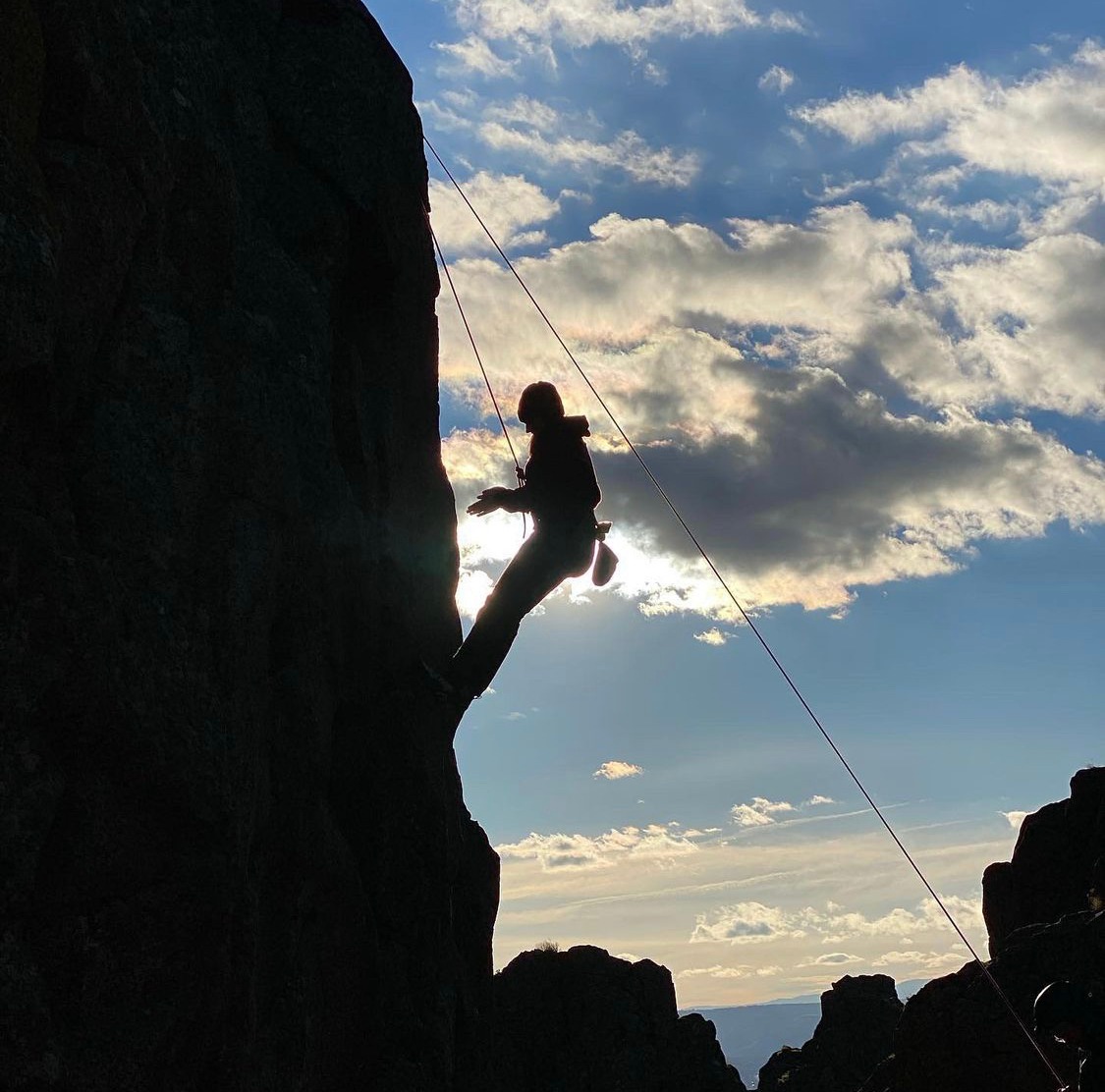I currently offer Experiential Therapy in person. This kind of therapy is highly unique and not limited to a single form of intervention. It can be particularly impactful when clients are seeking to go beyond traditional “talk therapy”. The work is designed to focus on actual involvement with different types of experiences including emotional processing, interacting with others and the environment, creativity, and reflective engagement. Some forms of experiential work I currently offer include: Adventure Therapy (such as somatic rock-climbing at the gym or walk-and-talk on the trail), and music (guitar). If you are interested in Experiential Therapy, please contact me.
 Benefits and Risks
Benefits and Risks
Experiential therapy has some unique benefits and risks that you should understand. The benefits include:
- A Non-Traditional Approach: Research suggests that Experiential therapy is more engaging than talk therapy alone, and has been shown to improve attention-focused tasks. There are many people who find this approach more successful than traditional methods.
- Therapeutic Alliance: We will have the opportunity to transfer learning from the therapy setting to real life with a focus on relevance. This process can strengthen the therapeutic alliance and build a stronger sense of trust, safety, intimacy, esteem, and power/control.
- Mind/Body Connection: The experiential approach can be particularly effective at reducing traumatic events and physiological symptoms stored in the body. The issues we discuss will come directly from the experience occurring in the moment. This mind-body integration is crucial as many people struggle to feel an obvious division between their bodies and their minds.
- Physical Health: Research has demonstrated there are physical health benefits that come with exposure to natural environments. These include stress reduction, mood improvement, and immune boosting effects.
The risks of experiential therapy include:
- Physical Health: As with any physically engaging activity, there are inherent risks going outside or being active. Please contact me about inclusive adaptations.
- Confidentiality: Unlike individual therapy, the nature of parks and public spaces may be interactive.
- Scheduling: Many experiential approaches will need to happen on a specific day and time. For example, equine therapy, challenge courses, or indoor rock climbing may depend on provider availability.
- Cost: Some experiential approaches may be more expensive than individual therapy.
How it Works
Experiential therapy is different than traditional sessions in that we will:
- Spend time getting to know each other through engaged activity.
- Mutually agree on the focus of the experience and which therapeutic tools will best support it.
- Practice a plan to help you reduce clinical symptoms and enhance the quality of your life.
Environments
To get started, we will discuss different experiences and their current availability. To make the most of our time together, I suggest the following:
- Consider an activity that naturally piques your curiosity
- Do a brief search and learn a little bit about the experience
- Consider how you might relate the experience to your present life
Complimentary Consult
Schedule a complimentary, 15-minute online consultation to discuss your situation and how my expertise can help.